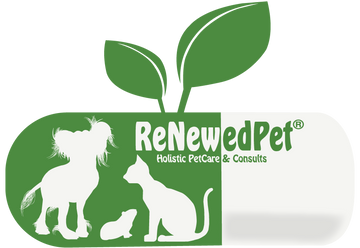
Skinny Pig Poop - What's Normal?
When it comes to monitoring the health of our skinny pigs, few indicators are as telling and as frequently overlooked as their poop. That's right, folks – today, we're bringing you the scoop on skinny pig poop. By understanding what's normal and what's not in terms of color, consistency, and smell, you can keep your little hippo in tip-top shape.
Normal Poop
Normal skinny pig poop is all about consistency. These little pellets should be firm, shaped like tiny olives, and dark brown in color. A healthy output indicates a well-functioning digestive system, thanks to a balanced diet primarily consisting of hay, fresh vegetables, and a moderate amount of pellets. The smell should be relatively mild – remember, if you're wrinkling your nose every time you near the cage, something might be off.
Color Cues
While dark brown is the standard, variations in poop color can occur based on diet. For instance, a sudden influx of leafy greens might darken the pellets, while carrots can add a reddish hue. However, colors that veer significantly from the brown spectrum deserve a second look. Particularly alarming are white, red (not diet-related), or very light-colored poops, which can signal issues ranging from kidney problems to internal bleeding. If you notice these changes, it's vet time.
Consistency
The consistency of your skinny pig's poop can tell you a lot about their health. Soft, mushy pellets may suggest a dietary imbalance or a need for more fiber, often remedied with increased hay intake. Conversely, very hard, dry poops could indicate dehydration or insufficient dietary fiber. In these cases, reassessing your pet's diet and water supply is crucial.
Occasionally, you might also encounter a condition known as "cecal pellets." These green pellets are a normal part of your skinny pig's digestion, often eaten directly from the behind to absorb essential nutrients. While it might seem odd to us, it's perfectly normal for them.
The Smell Factor
The smell of your skinny pig's poop can be a significant indicator of health. A foul, strong odor could be a sign of digestive issues or an infection. If the smell of your pet's habitat takes a turn for the worse despite regular cleaning, it's worth consulting a vet to rule out any health problems.
Prevention
Maintaining a healthy poop profile in your skinny pig involves a few key strategies:
Diet: This is the cornerstone of poop health. Ensure your skinny pig has unlimited access to high-quality hay, fresh vegetables, and a small amount of high-fiber pellets. Avoid sudden dietary changes, as these can disrupt their digestive system.
Hydration: A steady supply of fresh water is vital. Dehydration can quickly lead to digestive issues.
Exercise: Regular playtime and exercise help keep the digestive system moving.
Cleanliness: Keeping your skinny pig's living environment clean prevents the buildup of harmful bacteria that can affect their health.
When to Worry
While it's essential to keep a watchful eye on your skinny pig's poop, there are certain signs that should prompt immediate action.
- Sudden changes in color, consistency, or smell that do not correlate with dietary changes.
- A complete lack of poop, which can indicate a blockage or severe digestive issue.
- Persistent diarrhea or overly soft stools, as these can lead to dehydration and other health concerns.
- Blood in the poop - get to the vet ASAP
In any of these cases, consulting with a vet who is experienced with skinny pigs or guinea pigs is crucial. They can provide specific advice and treatment to get your furry friend back on track.
Monitoring your skinny pig's poop might not be the most glamorous aspect of pet ownership, but it's undeniably one of the most telling when it comes to their health. By paying close attention to the color, consistency, and smell of their outputs, and maintaining a balanced diet and clean habitat, you'll be well on your way to ensuring your skinny pig leads a long, happy, and healthy life.
Keep giving your pets the best of natural life!
~PetCoachApril
April Arguin A.S., C.P.N., M.P.H
Please note that RenewedPet LLC is an Amazon Affiliate. Therefore, all sales which result directly from product links we share on our website and any of our social accounts will earn us a small commission for the referral. However, this does not in any way impact the quality of the items we recommend to our pet community, we only recommend items we have either personally used and loved ourselves, or would personally use on our own pets. If Amazon doesn’t carry a product that we find best to recommend, we will continue to recommend purchase of that product elsewhere.
